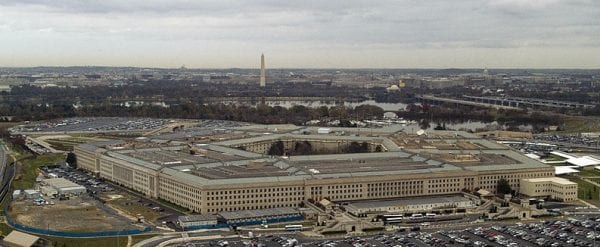
TPA Joins Coalition Urging Reform on LRSAM Program
Taxpayers Protection Alliance
November 21, 2014

The Lame Duck Congress is headed home for Thanksgiving, but when they return there will still be work that must get done. Besides the fact that the government will run out of funding on December 11, there is also the expiring (again) moratorium on Internet Access Taxes and the National Defense Authorization Act of 2015 (NDAA). On that note, it is important that Congress take a close look at what programs will be getting taxpayer funding and making sure that wasteful and unnecessary spending be eliminated. One program is to keep an eye on is the Long Range Anti-ship Missile (LRASM), which the President is seeking 202.9 million for to continue development. TPA has written before (read here) why this program shouldn’t be getting taxpayer money at all, and last week this organization joined a coalition letter sent by National Taxpayers Union and signed by 60 Plus Association, Americans for Tax Reform, Campaign for Liberty, Center for Freedom and Prosperity, Coalition to Reduce Spending, and the Council for Citizens Against Government Waste urging a reduction of spending on LRASM. While there are many programs that waste money, when an NDAA is passed it would be a win for taxpayers should LRASM’s funding be reduced.
Here is the full letter:
As organizations representing hundreds of thousands of Americans committed to fiscal responsibility, we believe that it is more imperative than ever that you carefully balance our nation’s need to have the world’s strongest military with strong fiscal policy. This requires a careful assessment of all proposed spending in the National Defense Authorization Act of 2015 (NDAA). One particular item that is cause for taxpayer concern is the President’s $202.9 million request for an offensive anti-surface warfare weapon development program, which is often referred to as the Long Range Anti-ship Missile (LRASM).
The Senate Armed Services Committee raised very serious issues about LRASM. Specifically, in its NDAA committee report it cited a history of non-competitive contracting, excessively high costs and insufficient consideration of viable alternatives. Further, the Committee expressed little optimism that these problems would be rectified in the future:
For fiscal year 2015, the Navy plan would continue that same non-competitive approach, but would field only a limited number of the air-launched version of the missile. The budget request and the future years defense program (FYDP) envision spending roughly $1.5 billion to acquire roughly 110 missiles.
The committee is concerned that this program was created to respond to an urgent combatant commander need, but was done so with insufficient analyses of other available alternatives, and with insufficient regard for the costs of locking in a long-term commitment under a non-competitive program.
As fiscal watchdogs, we are very familiar with numerous government projects that promise more than they can deliver and then become mired in budgetary overruns and schedule delays. LRASM has already shown many of those troubling signs.
Even in the realm of military spending, fiscal discipline and prioritization must be a guiding principle. Indeed, it should be especially vital, since misallocated funds on projects with questionable track records and precarious futures endanger lives – not only of our servicepeople, but the American citizens they so ably protect.
As Vice Admiral David Dunaway of the U.S. Navy recently said, “In the face of decreasing budgets, rapidly evolving threats, and a shift in national defense strategy that demands more than ever from our naval forces, it’s imperative that every dollar spent increase warfighting capability.”
LRASM fails to meet this standard, as it is built upon unsound technology and remains approximately a decade away from being operational. Congress and the Pentagon should instead explore options that better serve the interests of both the military and taxpayers.
We urge you to accept the Senate Armed Services Committee’s recommendation to reduce the President’s budget for LRASM by $202.9 million.
Sincerely,
Pete Sepp, President, National Taxpayers Union
David Williams, President, Taxpayers Protection Alliance
James L. Martin, Chairman, 60 Plus Association
Grover Norquist, President, Americans for Tax Reform
Norman Singleton, Vice President of Policy, Campaign for Liberty
Brian Garst, Director of Government Affairs, Center for Freedom and Prosperity
Jonathan Bydlak, President, Coalition to Reduce Spending
Tom Schatz, President, Council for Citizens Against Government Waste
